Reflection on a visit to the Elizabeth, New Jersey Detention Center
by Executive Director of ELCA Domestic Mission, Stephen Bouman
I joined Bishop Elizabeth Eaton in a visit to the Elizabeth, New Jersey Detention Center for undocumented immigrants. It was a convening of the many partners and allies in New Jersey who accompany civil society and its issues with the Gospel. Maristela Freiberg (Director for Evangelical Mission) represented the leadership of Bishop Bartholomew and the synod’s partnership with the churchwide ministry of the ELCA. Sara Lilja (Director-Lutheran Episcopal Advocacy Ministry of New Jersey) and Bishop Mark Beckwith, Bishop of the Diocese of Newark represented the collaboration between the New Jersey Synod ELCA and The Episcopal Church in New Jersey. Linda Hartke (President of Lutheran Immigration and Refugee Services) made present the great partnership between LIRS and the ELCA. Alaide Vilchez Ibarra (Migration Advocacy Director from the ELCA Advocacy Office) and John Potter (Journalist from ELCA Mission Advancement) made personal the partnership of our national Churchwide ministry. We came at the invitation of Pastor Ramon Collazo, pastor of Santa Isabel Lutheran Church in Elizabeth and their parish leaders. Ramon is also chaplain at the Detention Center and has established respectful relationships with the leadership of the Center, which has opened doors for the visitation and worship Lutherans provide. Deeply moving for me was the lay volunteer visitors, mostly retired, from various local Lutheran congregations who regularly visit the detention center. There was true grassroots agency here. They used their power to convene, invite, and to seek invitation. Any church can do this.
It was a full, emotional, troubling, hopeful day. We shared time with the young people and their leaders of the confirmation camp sharing stories about their own experience with immigrants in their family history and relationships, the issues involved, a biblical framework. We met with the leaders assembled above and their efforts to accompany those being deported where families are being ripped apart, as well as to advocate on issues of policy. Pastors talked about the challenges and opportunities of conversation with their own parishioners who have divergent views on immigration issues. The PICO community organizer spoke about keeping the issue of race front and center in dealing with immigration issues. Volunteers talked about how Saturday visitations at the Center was the best part of their week and helped give a human face to these issues in real and deepening relationships. Pastor Ramon and his leaders spoke about the life and leadership of their parish, and how they are trying to nurture and form leadership for their emerging Latino ministry.
The facility, in a warehouse in an industrial strip in the shadow of Newark Airport, is a drab, off-putting place. We surrendered our driver’s licenses and went through the metal detectors. We spent time with Warden Orlando Rodriguez who described how the Center functions. It is a for-profit business. Homeland Security is seeking to expand the number and capacity of these facilities. He described their attempt to provide housing, food, and safety for the inmates in as humane a way as possible. He described how their employees take deportees directly to the airport gate and put them on the plane. As he spoke about their work the effect on me was chilling. They do their work efficiently with a sense of duty. Grateful for the humanity being expressed, I was not for a moment distracted from the fact that these are still vulnerable people incarcerated for profit. We put people, often fleeing for their lives and apart from their families, in jail.
We had the opportunity to worship with about forty of the men, as they do every week. We were the guests and they welcomed us and many conversations immediately broke out throughout the room. The worship included readings, an inspiring message from Bishop Eaton (a direct and beautiful expression of the presence of Jesus and the hopeful power of the Gospel) and Bishop Beckwith. There was a time of extended prayer and individual blessings. Prayer, blessing, emotion, embraces and holding hands, the passing of stories rippled through the room. Many of the men were from West African countries, some from Latin America, a few from Asia. I held a man from Columbia as he wept telling his story of six weeks of incarceration hearing nothing from his family and having no family in the US. I was moved to tears seeing the friendship and affection between the volunteer visitors and their friends in the Center. There were some connections formed between some of the detainees and LIRS and Santa Isabel which will receive follow up. I was humbled by how eagerly our visit was received, how close to despair yet clinging to hope many of them are, their deep expressions of spirituality, and how vivid the presence of Jesus is in their lives. In this harsh environment, they have formed community with each other and I saw numerous moments of mutual empathy and care. I could imagine them as neighbors, members of my church.
Then we met with about fifteen of the women, who seemed to be mostly from Central America. Several were walking attentively one of the women who entered the room. She was crying. We heard that her brother had just been killed by a gang in El Salvador yesterday. We prayed for her and laid hands on her. Again there were many conversations, prayers, blessings moving through the room. I was able to hear several stories of mothers missing their children, of horrific conditions which caused them to flee, of death and despair back home. Again I noticed how they care for each other and how gratefully they received our visit and the deep spirituality which permeated the room. We left, but I am proud and humbled to be a part of the church where we know that tomorrow our presence and ministry continues through gifted and faithful partners.
Thoughts
Being in a room with someone changes everything. We weren’t dealing with an “issue” or “cause” in Elizabeth yesterday but human beings made in God’s image. Far from “resourced professionals” and “needy clients” there were human faces, great giftedness, the radiating presence of Jesus. We can disagree on “red or blue state” policies, but church is where we share the same space with every child of God, and I believe that growing relationships with immigrants, refugees, can transcend the fear and paralysis around this issue. And if we can’t talk and listen to each other in our own congregations about these things I’m not sure what the church has to offer the world at this point in our communal life and history.
What would it look like for every one of our congregations to nurture and support those who are willing to leave the building and visit those who are detained across our country, but also the immigrants in our own communities, and share the stories. Those Lutheran lay volunteers I met in Elizabeth could be any one of us in any place.
It’s time to say no to incarceration which commodifies human beings in for-profit jails. Steady, redundant, relentless advocacy, grassroots mobilization, and prayer must continue to be our public witness. The goal is still comprehensive immigration reform grounded in the deeply spiritual values of keeping families together; helping people come out of the shadows and living in full community; securing and defending basic human rights for all people; a path to the future where everyone belongs and can offer their gifts to the community. The world needs to see the church show up here, maybe providing a reason to give the Gospel and a life of faith another hearing.
The core of the visit and the ministries we witnessed and heard about was prayer and worship. The heartbeat is still the power of the presence of Jesus to draw us together in prayer and then move us to spiritually rooted action in the world.
Be a part of the response:
Pray
Please pray for the safety of migrant children and families that are being detained and those on the journey and for justice as they reach their destinations. Remember those who have lost everything and all those who are working to respond.
Give
Your gifts are needed now to help with immediate relief. Gifts designated for AMMPARO will be used in full (100 percent) to assist those directly impacted and have fled for safety.
Connect
To learn more about the detention centers, what the ELCA is doing, and how you can get involved:

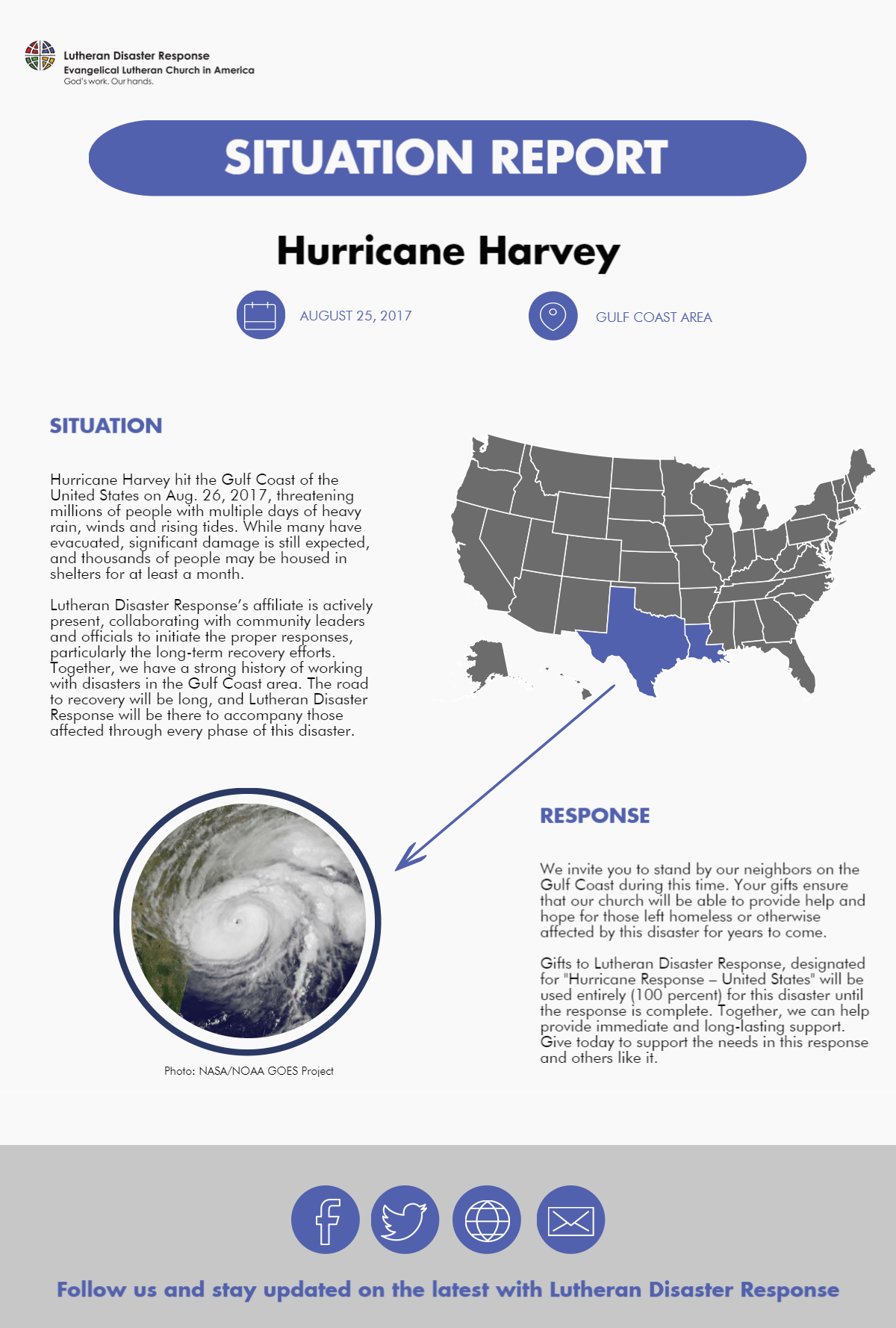
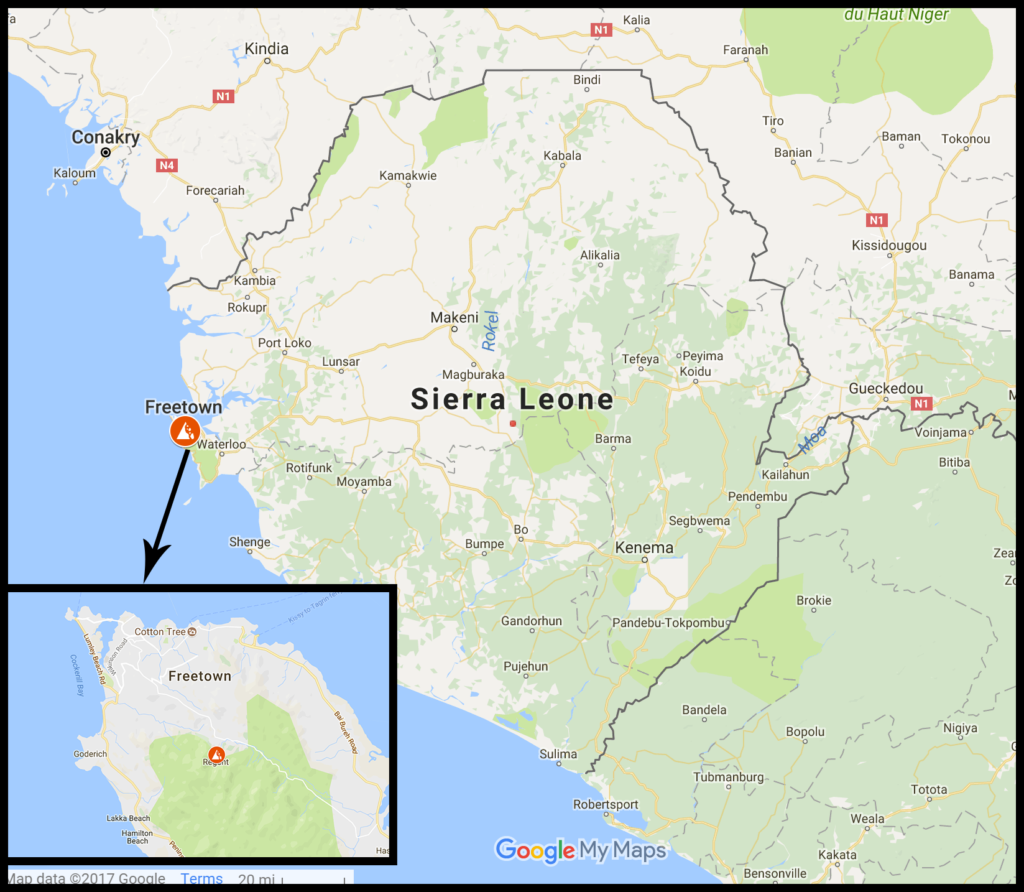

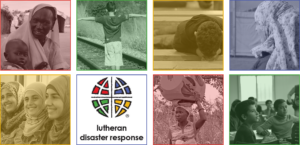
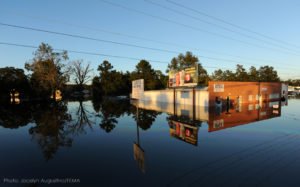
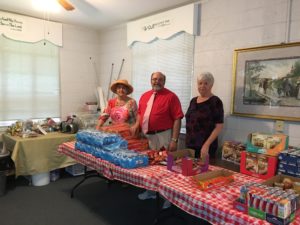
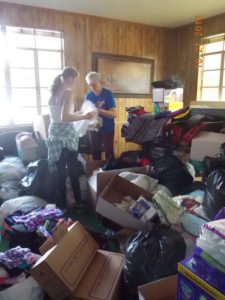
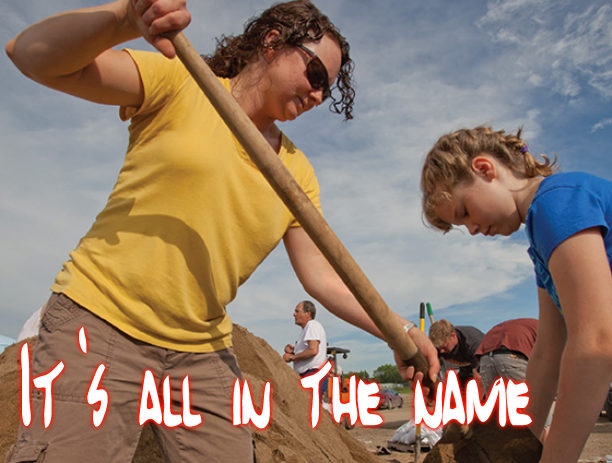 When disaster strikes, it often affects whole communities. Even areas of a community not directly impacted by, say, a flood, will almost always be affected in other ways. There is a rippling effect.
When disaster strikes, it often affects whole communities. Even areas of a community not directly impacted by, say, a flood, will almost always be affected in other ways. There is a rippling effect.